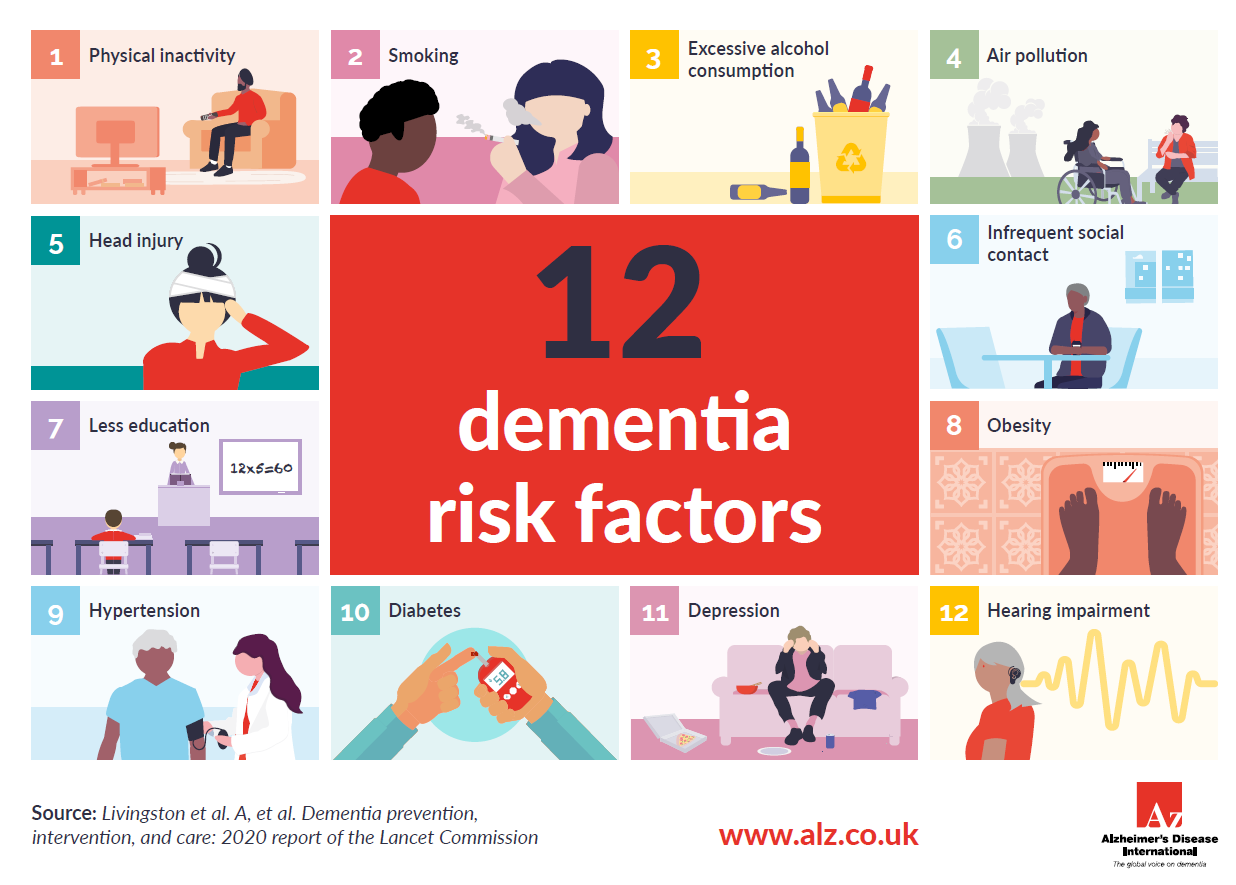An Aging Society #4: Confronting the Rising Tide of Dementia
Why is it important? Why now?
Dementia is a syndrome affecting a person’s memory, thinking, behavior, and ability to perform day-to-day activities. The impact of dementia is not only on the individuals with the condition; dementia also has an overwhelming effect on the caregivers (7). Family members face the burden of dementia care entailing heavy psychosocial and economic impact. Caregivers need information on disease management, how to navigate the support systems, and stress relief (4). This post will review some facts on dementia, helpful resources, and risk factors associated with the condition.
First, here are the ten facts on dementia as issued by the World Health Organization (7):
Dementia is not a normal part of aging.
Worldwide, around 50 million people have dementia, and nearly 10 million new cases every year.
A new case of dementia is diagnosed every 3 seconds. The number of people with dementia is expected to increase to 82 million in 2030 worldwide, and 152 million in 2050.
Huge economic impact costing US$818 billion per year.
Caregivers of people with dementia experience high stressors including physical, emotional, and economic pressures.
Early diagnosis improves the quality of life of people with dementia and their families.
People with dementia and their families are often discriminated against. People with dementia are frequently denied the basic rights and freedom available to others.
Awareness and advocacy are needed.
More research and innovation are required. Research that identifies the modifiable risk factors of dementia is still scarce.
Dementia is a public health priority. Resources and actions are critical for preventing and supporting dementia-related issues (7).
What can we do to mitigate dementia risks?
Since we don’t have a cure for dementia yet, prevention and support in mitigating risk factors are critical to older adults and people of all ages. The Alzheimer’s Disease International (1) has summarized the twelve dementia risk factors as seen below. We can all do something to reduce the risks by staying active, avoid smoking, limit alcohol consumption, maintain good air quality, prevent head injury, socialize when appropriate, seek more knowledge about health and wellness, and maintain a healthy lifestyle from a previous post.
According to Alzheimer’s Disease International (1), dementia is not only a disease affecting older adults, young onset dementia can also sometimes affect people who are under the age of 65. Therefore, understanding the conditions and risk factors of dementia can help us in preventing and confronting this disease through early detection.
In Canada, more than 564,000 Canadians are living with dementia. Though Canada commits to spending $50-million in the next five years on dementia initiatives, this funding is likely to be inadequate to meet the staggering demands on both the health care system and informal care burden (6). It is important to stay abreast of this topic and its development. Here are some helpful resources including the website links:
Canadian Resources:
Alzheimer Society of Canada has a history of supporting Canadians living with dementia. The society focuses on alleviating the personal and social consequences of Alzheimer’s and related diseases, and to promote the search for causes, treatments, and a cure for dementia. Services and programs are available through local societies by provinces and/or regions.
brainXchange™ (2) is a network of people dedicated to improving quality of life and supports for persons with or at risk of having brain-health needs related to dementia, mental health and neurological conditions related to aging or have experienced brain health changes earlier in life that are now more complex with aging.
International Resources:
Alzheimer’s Disease International (1) is the international federation of Alzheimer and dementia associations around the world. ADI was established in 1984 by in initiative of the Alzheimer associations in the USA, UK, Australia, and Canada. ADI focuses on risk reduction, timely diagnosis, care, and inclusion in confronting current issues with dementia.
World Health Organization fact sheets (7) on dementia and other health topics on a global scale. Deaths due to dementias more than doubled between 2000 and 2016. Alzheimer disease and other dementia-related diseases are listed among the top five global causes of death in 2016.
Canada and the many countries are heeding the call to action in confronting the rising tide of dementia. Check out the exciting opportunities in this post.
References:
(1) Alzheimer's Disease International (ADI). (n.d.). Retrieved November 27, 2020, from https://www.alzint.org/
(2) BrainXchange. (2020). Retrieved November 27, 2020, from https://brainxchange.ca/public/home
(3) Canada, Public Health Agency. (2019). Government of Canada. Retrieved November 27, 2020, from https://www.canada.ca/en/public-health/services/publications/diseases-conditions/dementia-strategy.html
(4) De Cola, M. C., Lo Buono, V., Mento, A., Foti, M., Marino, S., Bramanti, P., Manuli, A., & Calabrò, R. S. (2017). Unmet Needs for Family Caregivers of Elderly People With Dementia Living in Italy: What Do We Know So Far and What Should We Do Next? INQUIRY: The Journal of Health Care Organization, Provision, and Financing. https://doi.org/10.1177/0046958017713708
(5) Proulx, G. (2020, April). "Psychology Works" Fact Sheet: Cognitive Disorders and Dementia. Canadian Psychological Association. https://cpa.ca/docs/File/Publications/FactSheets/FS_CognitiveDisorders_EN_2020.pdf.
(6) Stall, N. M., Tardif, P., & Sinha, S. K. (2019). Ensuring Canada’s first dementia strategy is not shelved and forgotten. Canadian Medical Association Journal, 191(31). doi:10.1503/cmaj.190929
(7) WHO. (2020). Dementia. Retrieved December 01, 2020, from https://www.who.int/news-room/fact-sheets/detail/dementia


